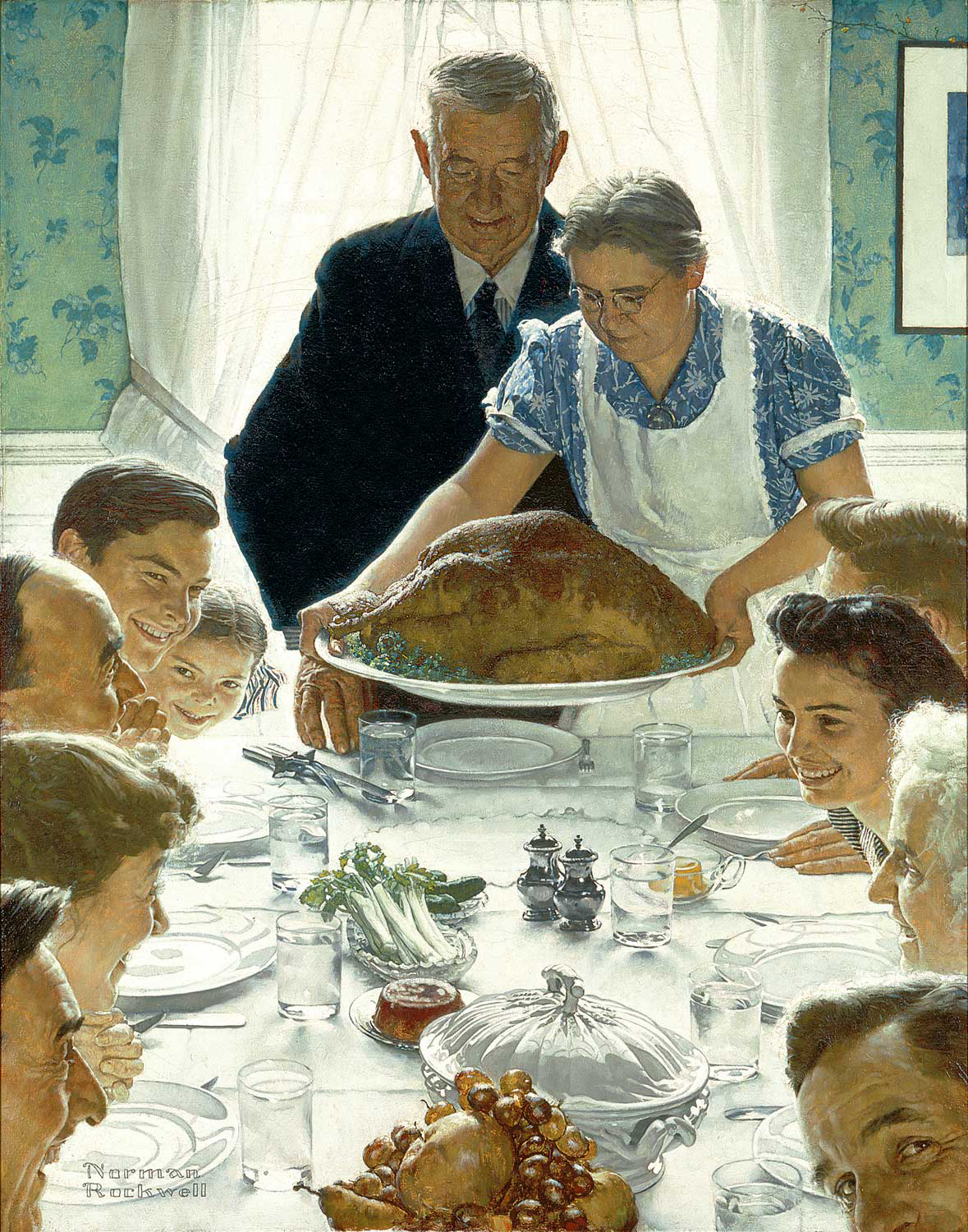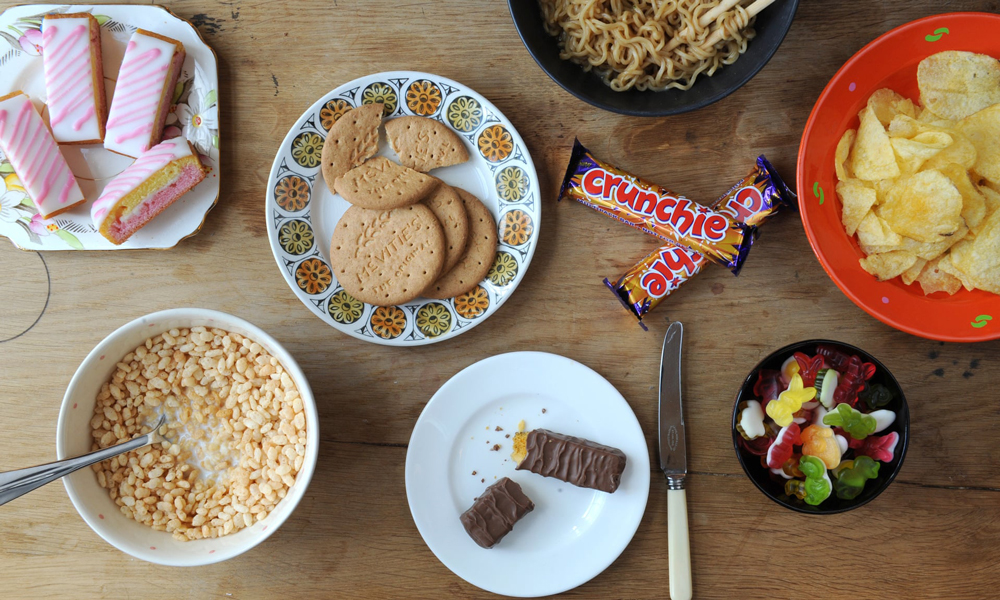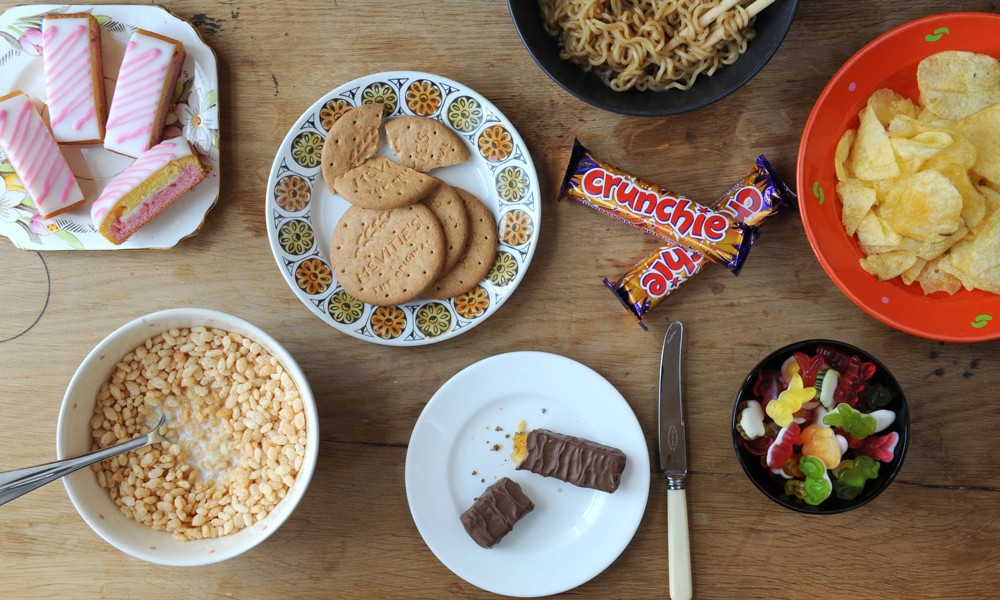Engelsk B
Ny ordning
kl. 09.00-14.00
Vejledning til opgavesættet
| Du skal besvare følgende opgaver: | |
|
|
| Tekster til Assignment 5: | |
|
Vejledning til opgaverne
Den samlede eksaminationstid for Assignment 1-5 er fem timer. Besvarelsen bedømmes som en helhed ud fra de faglige mål for niveauet. Der lægges vægt på beherskelsen af det engelske sprog, forståelse af forlægget og færdighed i skriftlig fremstilling på engelsk.
Det anbefales, at du skriver din besvarelse i skabelonen, som hentes ved klik på Template i menuen til venstre. Besvarelsen afleveres i ét dokument med opgaverne i rækkefølgen 1-5.
Sådan henviser du til tekst, video- og lydklip
Hvis du citerer, skal du angive kilde.
Alt anvendt materiale skal være engelsksproget og angives med kildehenvisninger.
Du kan henvise til dele af video- og lydklip, f.eks. ved at angive afspillerens minut- og sekundtal for henholdsvis starten og slutningen af klippet.
|
Tekster i opgavesættet
Teksternes ortografi og tegnsætning følger forlæggene. Trykfejl er dog rettet.
Opsætningen følger ikke nødvendigvis forlæggene. Dog følges forlægget nøje, hvor opsætningen på den ene eller anden måde indgår i opgaven.
Assignment 1
Nedenstående videoklip indeholder tre verballed (udsagnsled). Bemærk, at et verballed kan bestå af et eller flere verber (udsagnsord).
Angiv de tre verballed i tabellen nedenfor, hvilken tid de står i, og om de står i simpel eller udvidet tid.
Uddrag fra: Michael Pollan’s Seven Words
| Verballed | Tid | Simpel eller udvidet tid |
Omskriv sætningen fra videoklippet til perfektum (førnutid) og indsæt den i tabellen.
Assignment 2
I nedenstående tekstuddrag er et antal ord understreget. Angiv i tabellen, hvilken ordklasse ordene tilhører.
The UK data they analysed came from the Living Costs and Food Survey 2008, the latest available. They categorised foods into four groups. More than a quarter of food (28.6%) was unprocessed or minimally so, 10.4% was processed cooking ingredients such as vegetable oil and 10.2% was ordinarily processed, such as cheese or cured meat. Ultra-processed food amounts to more than all the other groups combined.
Professor Carlos Monteiro from the University of Sao Paulo in Brazil, who led the research team, told the Guardian of his deep concern about the links between ultra-processed food with obesity and poor health.
Ultra-processed foods may look attractive and are designed with sweet or salty tastes that make us want more. But there is nothing nutritious about them, Monteiro said.
| Substantiv/ Navneord |
Verbum/ Udsagnsord |
Præposition/ Forholdsord |
Artikel/ Kendeord |
Adverbium/ Biord |
Adjektiv/ Tillægsord |
Pronomen/ Stedord |
|
data |
X |
||||||
| they | |||||||
| the | |||||||
| into | |||||||
| a | |||||||
| minimally | |||||||
| ordinarily | |||||||
| combined | |||||||
| who | |||||||
| about | |||||||
| obesity | |||||||
| poor | |||||||
| look | |||||||
| tastes | |||||||
| nutritious |
Uddrag fra: “ 'Ultra-processed' products now half of all UK family food purchases”
Assignment 3
I nedenstående tekstuddrag er fem apostroffer fjernet i ord, der står i genitiv (ejefald). Skriv de fem ord korrekt med apostrof i skemaet nedenfor.
Faced with unusual leftovers, Mum would take on her most ambitious projects. To revive the day-old fries from my sisters McDonalds birthday party, for example, she decided to put them in a Cantonese chicken stew. Spuds and fries were the same thing once, she reasoned. How bad could it be?
In these moments, Dad is the only one who pushes on stoically. Not once have I seen him complain or panic in the face of Mums nonconformist cooking. It was as if with each meal, he was sending the same message: to love is to gamble, sometimes gastrointestinally.
(…)
The truth is, we often stay quiet about a partners cooking habits until it feels "too late" to say anything.
Modern dating rituals are partly to blame. While it's easy to feel compatible over a delicious wine and our separate mains, learning about each others private food rituals can be rather sobering.
| Ordet skrevet korrekt med apostrof | |
| 1. ord | |
| 2. ord | |
| 3. ord | |
| 4. ord | |
| 5. ord |
Uddrag fra: “What to do when you hate your partner’s cooking”
Assignment 4
Skriv en sammenhængende tekst på 75 til 125 ord, med udgangspunkt i billedet. I din tekst skal du anvende futurum (fremtid) tre gange.
Marker din brug af futurum i din tekst.

Norman Rockwell, Freedom From Want, 1943
Assignment 5: Food and Health

Assignment
Argumentative essay
Using all the texts from the given material, write an argumentative essay in which you account for and discuss issues of food and health.
Give your essay an appropriate headline.
Word count: 700-1000 words
Source material:
- 'Ultra-processed' products now half of all UK family food purchases
- Michael Pollan’s Seven Words
- Special K #poweringyou - everything we are made of powers everything you are made of
All sources must be documented.
'Ultra-processed' products now half of all UK family food purchasesExclusive: health experts warn increasing popularity of industrially-made food will lead to negative effects such as obesity and poor health 
Some of the UK’s best-selling ultra-processed foods. Photograph: Jill Mead for the Guardian Half of all the food bought by families in the UK is now “ultra-processed”, made in a factory with industrial ingredients and additives invented by food technologists and bearing little resemblance to the fruit, vegetables, meat or fish used to cook a fresh meal at home. Research by global nutrition experts reveals the scale of our food evolution, from farm-fresh to 5
factory-manufactured. “Real food” has been replaced by salty snacks and sugary cereals, industrially-made
bread and desserts, ready-meals and reconstituted meats alongside sweetened soft drinks. The study of 19 European countries is published this month in a special issue of the journal Public Health Nutrition. It shows that UK families buy more ultra-processed food than any others in Europe, amounting to 50.7% of the diet. Germany comes second, on 46.2% and then Ireland on 45.9%. While the figures are not 10
directly comparable, extracted from national surveys carried out differently and from different years, the
trend is clear. More than half of the food bought by UK households is ultra-processed Ultra-processed food as a % of household purchases The UK data they analysed came from the Living Costs and Food Survey 2008, the latest available. They 15
categorised foods into four groups. More than a quarter of food (28.6%) was unprocessed or minimally so,
10.4% was processed cooking ingredients such as vegetable oil and 10.2% was ordinarily processed, such as cheese or cured meat. Ultra-processed food amounts to more than all the other groups combined. Professor Carlos Monteiro from the University of Sao Paulo in Brazil, who led the research team, told the Guardian of his deep concern about the links between ultra-processed food with obesity and poor health. 20
Ultra-processed foods may look attractive and are designed with sweet or salty tastes that make us want
more. But there is nothing nutritious about them, Monteiro said. “Take breakfast cereals. If you take Froot Loops, for instance, more than 50% is sugar. There is no fruit ...,” he told the Guardian [the actual figure is 41%]. “Ultra-processed foods are essentially new creations of the food industry with very low cost ingredients in 25
a very attractive product.”
Separate data obtained by the Guardian from Euromonitor reveals the biggest selling brands of ultra-processed foods in the UK. Mr Kipling, made by Premier Foods, tops the poll for cakes. They also own Batchelors, which lead on dried ready meals, such as Super Noodles and soups in a cup. McVitie’s are the lead sellers of sweet biscuits. 30
Kellogg’s dominates cold breakfast cereals.
Cadbury’s chocolate, Wrigley’s gum and Haribo sweets all top their categories in confectionery. Lay’s, from Pepsico, are the biggest selling salty and savoury snacks. These foods are made from cheap ingredients and produced on a huge scale, Moneteiro said. Ultra-processed cheese is made of milk powder and additives, for example. Some instant noodles are not 35
noodles, he said.
“If you have instant noodles that are essentially based on oils and starch and additives, you are not eating real noodles. The same goes for chicken nuggets – when you get these ultra-processed chicken nuggets you are not getting real chicken,” he said. There are two problems with all this, he said. People are missing out not only on vitamins and minerals but 40
also bioactive compounds found in natural foods such as phytoestrogens and fibre.
 Mr Kipling, made by Premier Foods, is the most popular ultra-processed cake brand in the UK. Photograph: Jill Mead for the Guardian “And then you get salt and starch and sugar and fat and all these additives. We are consuming every day an amount of new substances that are these flavours and colours and emulsifiers and we don’t have any idea as to what will be the problem of these items,” he said. Regulations concerning the use of additives and flavouring date mostly from the past century and were 45
focused on whether or not they caused cancer, he said. Other cumulative effects of eating these
industrially-made substances are not yet known. “The honest answer is we don’t know what is going on,” said Monteiro. Jean-Claude Moubarac, professor of nutrition from the University of Montreal in Canada, who works with Monteiro, said they had found that ultra-processed foods “have very low nutritional quality in terms of the 50
amount of free sugars they contain and sodium [salt] and saturated fat and they tend to be much lower
in proteins, minerals and vitamins”. They are also high in calories. Their research shows that the adage repeated constantly by the food industry and adopted by politicians – that “there is no such thing as bad food, just too much food” – is wrong, he said. “When we compare ultra-processed foods to the rest we see striking differences [in nutritional quality],” he 55
said. “We are recommending people limit or avoid ultra-processed foods because they have very low
nutritional quality.” Eating biscuits or crisps or drinking cola occasionally does no harm, he says, but these foods are designed to make us want more of them. “It is beyond liking. We are entering the world of craving,” he said. They are also universally available and cheap. The key ingredients are refined flours, cheap oil and fats, sugars, 60
starches, protein isolates and salt.
“We are moving further and further away from food that nourishes us,” he said. Professor Corinna Hawkes, director of food policy at City University London and one of the lead researchers in the government-funded obesity research policy unit, agrees we should try to reduce our reliance on ultra-processed foods. 65
She cited the example of Pepsi’s Walkers Sunbites, which are popcorn sold as a wholefood snack. “That’s
a classic reformulation. They are baked with whole grain and vegetable oils. I think they add absolutely no value to the diet whatever. Have a piece of wholegrain bread if you want a healthy snack.” But, she said, we need change in our eating culture and children need to learn* to like the taste of real foods, including those that are bitter. 70
(...)
The food companies said their products could be consumed as part of a balanced, healthy diet and that they were making changes to allow consumers to make healthier choices. Kellogg’s said Froot Loops in Europe were made from “natural grains and contain only natural colours” and fortified with added vitamins. Premier said it had reduced the sugar in Mr Kipling slices. McVitie’s said it provided transparent information so 75
people could make “informed snacking choices”.
This article was amended on 7 February 2018 to clarify that Froot Loops contain 41% sugar. *ord er fjernet |
Tilbage
Sources
Sarah Boseley, “ 'Ultra-processed' products now half of all UK family food purchases”, an article, 02-02-2018. The Guardian website. Viewed 31-01-2019.
https://www.theguardian.com/science/2018/feb/02/ultra-processed-products-now-half-of-all-uk-family-food-purchases
“Michael Pollan’s Seven Words”, a video, PBS website, 30-12-2015. Viewed 31-01-2019.
https://www.pbs.org/show/in-defense-of-food/
“Special K #poweringyou - everything we are made of powers everything you are made of”, a video, Kellogg’s UK website. Viewed 31-01-2019.
https://www.kelloggs.co.uk/en_GB/brands/special-k-/poweringyou.html
Candice Chung, “What to do when you hate your partner’s cooking”, an article, Good Food website, 22-03-2017. Viewed 01-02-2019.
https://www.goodfood.com.au/recipes/how-to/what-to-do-when-you-hate-your-partners-cooking-20170321-gv2ppt
Painting by Norman Rockwell, Freedom From Want, 1943, from Norman Rockwell Museum website. Viewed 31-01-2019.
https://www.nrm.org/?s=want
Photo taken from Sarah Boseley, “ 'Ultra-processed' products now half of all UK family food purchases”, an article, 02-02-2018. The Guardian website. Viewed 31-01-2019.
https://www.theguardian.com/science/2018/feb/02/ultra-processed-products-now-half-of-all-uk-family-food-purchases
